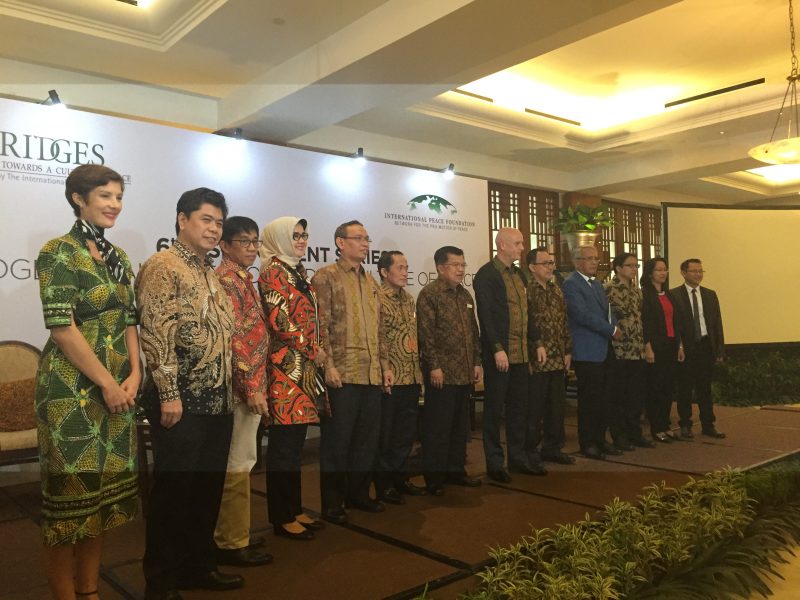Indonesia will welcome Nobel Prize winners for the first time next year in a bid to promote global peace. Here is what locals should expect from the event series.
A select group of Nobel laureates will be visiting 14 universities across the archipelago from January to March in the event series entitled “Bridges – Dialogues Towards a Culture of Peace”. As part of the series, locals will get the chance to attend seminars and engage in a range of topics including the economy, politics, science, culture and the media.
Bridges is hosted by the Vienna-based International Peace Foundation (IPF). Since its inception in 2003, the programme has sought to support education in ASEAN by inviting Nobel laureates and distinguished figures to lead discussions about important issues.
This time, Indonesia will finally be able to participate in the global initiative. In January, winner of the 2007 Nobel Prize for Economics Erick Stark Maskin will kick off the event series with a speech on how the global market has failed to address the issue of inequality. Maskin, who is also a professor at the Adams University at Harvard, will make an appearance at Surabaya University in East Java.
In the capital, Jose Manuel Barroso, who is a former Portuguese prime minister and winner of the prize in 2012, will be discussing global governance at Prasetya Mulia University. Other participating Nobel laureates include Peter Agre of John Hopkins University (chemistry) who will speak about the role of medical science; Sir Richard J. Roberts (medicine) on why we must love bacteria; and Sheldon Lee Glashow (physics) on how science can foster technological advances.
Chairman of IPF Uwe Morawetz recently said that he hopes Bridges can motivate local institutions to build networks and partnerships with the Nobel laureates. During a press conference in Jakarta, he also highlighted the role of education as the basis of peace and development.
Also present at the conference was none other than Vice President Jusuf Kalla, who came to support the event. He revealed that Bridges could indeed broaden the horizon of local academics.
In the past, as many as 66 keynote speakers, which included 48 Nobel winners, have contributed in Bridges which has taken place in countries such as Thailand, the Philippines, Cambodia, Vietnam and Singapore. Although the event is known among academics, it has also invited well-known public figures who set out to reach the global audience by highlighting interesting topics.
Actor Jackie Chan, for example, is among those who visited Thailand to speak on the topic “Art and Culture as A Pathway towards Peace” back in 2010. He spoke to drama and arts students about the importance of delivering valuable messages through movies and encouraged them to give back to others.
Bridges is one of over 1,000 programmes that IPF has arranged thus far.
The not-for-profit foundation was established in 1989 and is best known for supporting peace activities by focusing on scientific projects and research that would help provide solutions for international conflicts.
Similar to programmes like Bridges, they also include the help of distinguished figures who have earned accomplishments as Nobel laureates. Their presence is meant to encourage scholars, students and people across the globe to partake in bringing about change.
Locals interested in attending the event series can catch these Nobel laureates during their visits to universities like University of Indonesia (Depok), Bandung Institute of Technology (Bandung), Binus School Simprug (DKI Jakarta), University of Gajah Mada (Yogyakarta), Airlangga University (Surabaya) and Udayana University (Bali). The events are free of charge.
For more information please visit http://www.peace-foundation.net




